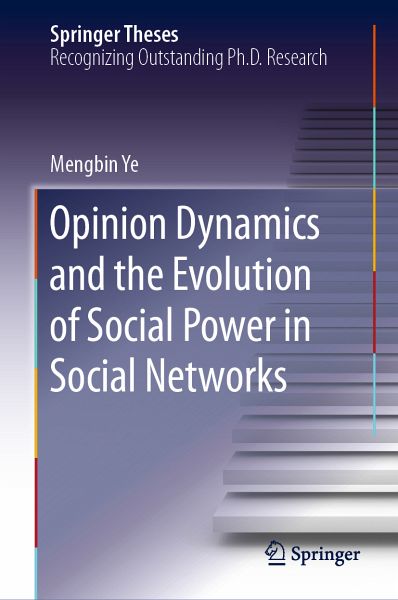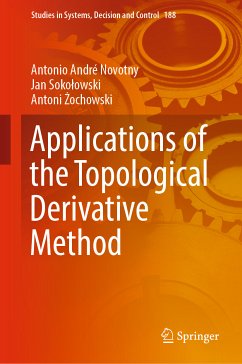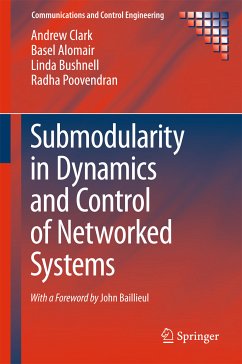
Opinion Dynamics and the Evolution of Social Power in Social Networks (eBook, PDF)
Versandkostenfrei!
Sofort per Download lieferbar
73,95 €
inkl. MwSt.
Weitere Ausgaben:

PAYBACK Punkte
37 °P sammeln!
This book uses rigorous mathematical analysis to advance opinion dynamics models for social networks in three major directions. First, a novel model is proposed to capture how a discrepancy between an individual's private and expressed opinions can develop due to social pressures that arise in group situations or through extremists deliberately shaping public opinion. Detailed theoretical analysis of the final opinion distribution is followed by use of the model to study Asch's seminal experiments on conformity, and the phenomenon of pluralistic ignorance. Second, the DeGroot-Friedkin model fo...
This book uses rigorous mathematical analysis to advance opinion dynamics models for social networks in three major directions. First, a novel model is proposed to capture how a discrepancy between an individual's private and expressed opinions can develop due to social pressures that arise in group situations or through extremists deliberately shaping public opinion. Detailed theoretical analysis of the final opinion distribution is followed by use of the model to study Asch's seminal experiments on conformity, and the phenomenon of pluralistic ignorance. Second, the DeGroot-Friedkin model for evolution of an individual's social power (self-confidence) is developed in a number of directions. The key result establishes that an individual's initial social power is forgotten exponentially fast, even when the network changes over time; eventually, an individual's social power depends only on the (changing) network structure. Last, a model for the simultaneous discussion of multiple logically interdependent topics is proposed. To ensure that a consensus across the opinions of all individuals is achieved, it turns out that the interpersonal interactions must be weaker than an individual's introspective cognitive process for establishing logical consistency among the topics. Otherwise, the individual may experience cognitive overload and the opinion system becomes unstable. Conclusions of interest to control engineers, social scientists, and researchers from other relevant disciplines are discussed throughout the thesis with support from both social science and control literature.
Dieser Download kann aus rechtlichen Gründen nur mit Rechnungsadresse in A, B, BG, CY, CZ, D, DK, EW, E, FIN, F, GR, HR, H, IRL, I, LT, L, LR, M, NL, PL, P, R, S, SLO, SK ausgeliefert werden.












